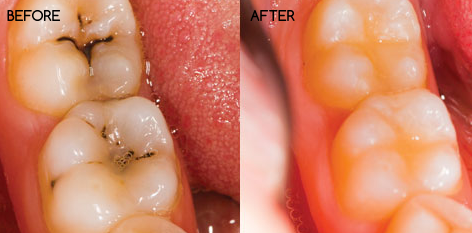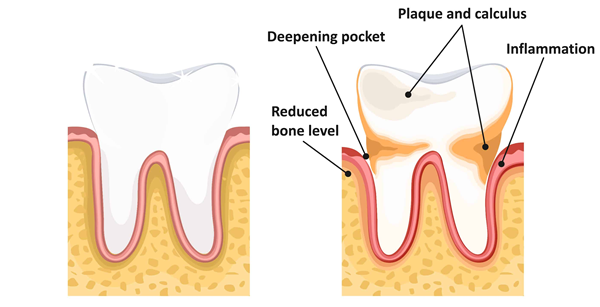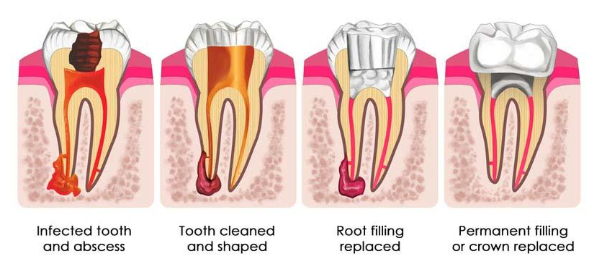General Dentistry
Routine dentistry is important in order for you to keep a healthy mouth, keep your teeth for longer and have less dental treatments. Your dentist and/or hygienist will carry out an assessment and investigate tests in order to allow them to tailor treatment and advice to your exact needs and also arm you with the knowledge and skills required to minimise the chance of any adverse conditions from occurring again.
Each time you visit the dentist or hygienist they are looking for early signs of tooth decay, gum disease, signs of mouth cancer or other mouth sores and even tooth wear.
Conditions such as mouth cancer and denture stomatitis can be spotted during regular visits to the dentist and then treated.

Fillings
Tooth structure and integrity can become compromised by decay which softens the tooth substance and results in a cavity. Other reasons why tooth structure can become compromised are due to tooth wear, cracks or breaks due to excessive forces during function or even trauma for example due to a knock to the teeth during an accident. A filling is used to build up a tooth to its original natural size and shape in order to revive the function and appearance of the missing tooth structure.

Periodontal Treatment
Periodontal Gum Treatment (for gum disease) is the treatment of swelling, soreness or infection of the tissues supporting the teeth. The two main types of gum disease are gingivitis and periodontitis. Long-standing gingivitis can turn into periodontitis, affecting the tissues supporting the teeth. Bacteria growth below the gum margin leads the gum to detach from the tooth and form so called ‘pockets’.
If periodontal disease is left untreated it can lead to tooth loss. Most people have some form of gum disease, and it is the major cause of tooth loss in adults.

Root Canal Treatment
Root canal treatment (also called endodontics) is needed when the blood or nerve supply of the tooth (known as the pulp) is infected through decay or injury. You may not feel any pain in the early stages of the infection. In some cases, your tooth could darken in colour, which may mean that the nerve of the tooth has died (or is dying). This would need root canal treatment. If the pulp becomes infected, the infection may spread through the root canal system of the tooth. This may eventually lead to an abscess (gumboil). An abscess is an inflamed area in which pus collects and can cause swelling of the tissues around the tooth. The symptoms of an abscess can range from a dull ache to severe pain and the tooth may be tender when you bite. If root canal treatment is not carried out, the infection will spread and the tooth may need to be taken out.

Contact Our Treatment Coodinator
We offer a range of treatments, which can all be discussed with our Treatment Coordinator. Just give us a call on 01206 271 192 or fill out the contact form to arrange a consultation:
Our Treatment Coordinator's role is to use training and in-depth knowledge to inform and educate you, ensuring you can make informed decisions that are right for you. This means that all our patients have someone to talk to, throughout their journey with us.
Give us a call on 01206 271 192 or fill out the contact form and we'll be in touch.

